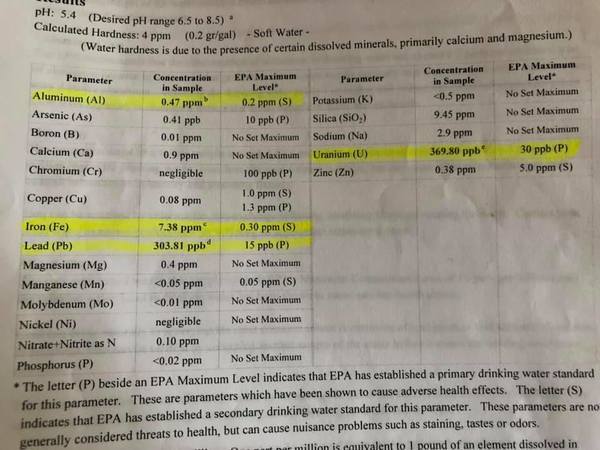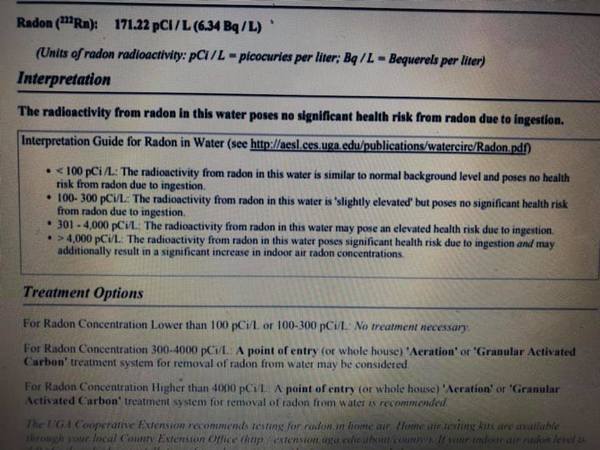 Confused about how to test your water for arsenic?
I was, too.
Here’s how to do it.
Confused about how to test your water for arsenic?
I was, too.
Here’s how to do it.
Recently, there was
a statement made by the Department of Health,
recommending that well owners have their wells tested for arsenic.
I had heard about this
previously from Janet McMahan and definitely
wanted to do what she recommended (test hot water also).
 I volunteer regularly at the County Extension Office and figured it
would be easy to get what I needed for the testing.
I volunteer regularly at the County Extension Office and figured it
would be easy to get what I needed for the testing.
I got a sheet of paper labelled “Water Submission Form” and it
seemed like a standard information sheet, name, address type of
well, tests requested. I figured that this is filled in at the
extension once I would bring in my sample.
I got a summary sheet of paper labelled “Sampling Protocol for
Testing Drinking Water” and knew that I wanted to test for Arsenic
and Uranium so I followed those directions for both hot (as directed
by Janet) and cold water. There is a more complete document about
water quality attached.
Then, I took my samples to the extension office along with the list
of tests that Janet had recommended getting. “Oh,” said the office
manager, “you didn’t bring enough water for all those tests.”
She opened
the book about tests and showed me that some tests I want
need 4 ounces each (and one of them needs 16 oz) so the two 4 oz
bottles I brought in are not near enough.
When she explained to me that tests W1 and W3 cost the same as W2
and W2 tests for more stuff, I figured I should get W2 instead of W1
and W3. But I didn’t even know what those things were, nor that the
collection mechanisms are really different when I started.
It’s sort of like learning a foreign language, you can say the
words, but until you actually know what they mean you don’t have a
clue.
Understanding what each of the different water tests are, how to
properly collect the water and how they are priced (another
important factor) made it clear to me that I needed to go home (with
some new bottles) and collect water on another day.
-gretchen
Water Quality and Common Treatments for Private Drinking Water Systems,
Revised by Uttam Saha, Leticia Sonon, Mark Risse1 and David Kissel,
Originally written by Anthony Tyson and Kerry Harrison, Extension Engineers.






